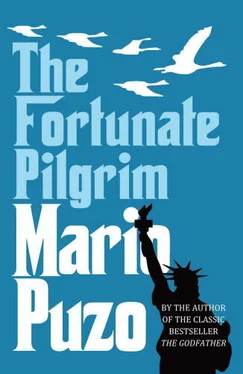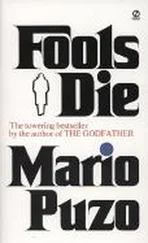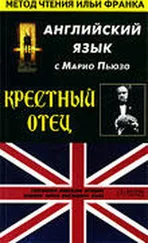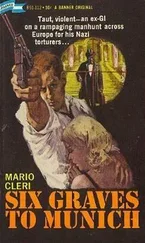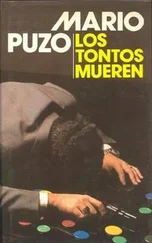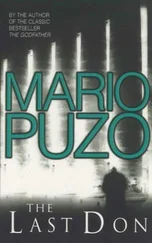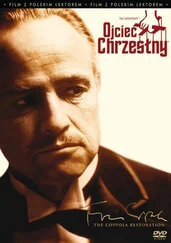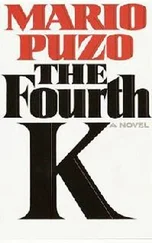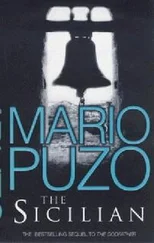Larry saw Gino and motioned him to come over. He introduced Gino to the men, who shook his hand with solemn firmness to show their respectful sympathy. Then Larry took Gino aside and whispered, “Go in and see Vinnie and talk to your mother.” For a moment Gino was bewildered by his saying “go in and see Vinnie,” as if his brother were alive. Larry led him deep to the far end of the room, where there was another, smaller, archway almost hidden by a group of men gathered in front of it.
Two little boys skittered past Gino on the polished black floor, and an outraged shouted whisper followed from their mother. A young girl not more than fourteen chased after them, cuffed them soundly, and dragged them back to their chairs against the wall. Gino finally made his way through the second archway into another small room. Against the far wall was the coffin.
Vinnie lay on white satin. His bones, his brows, his high, thin nose swelled like hills around his closed, hollowed eyes. The face was remembered, but this was not his brother. Vinnie wasn’t there in any way. It was all gone—the awkward posture of his body, the shielded, hurt eyes, the awareness of defeat, and the gentle, vulnerable kindness. What Gino saw was a soulless, invincible statue, without interest.
And yet he was offended by the women in this small room. They sat against the wall at right angles to the coffin, talking in soft voices but in a general way. His mother spoke little, but in a quite natural tone. To please her, Gino walked to the coffin and stood directly over his brother, looking more at the satin coverlet and feeling nothing because it wasn’t really Vinnie—only some general proof of death.
He turned to go out the archway but Octavia rose and took his arm and led him to his mother. Lucia Santa said to the woman sitting next to her, “This is my son Gino, the oldest after Vincenzo.” It was her way of telling them he was the child of her second husband.
One of the women, face wrinkled like a walnut, said almost angrily, “ Eh, giovanetto, see how mothers suffer for their sons. Take care you don’t bring grief to her.” She was a blood relative, and could speak with impunity, though Octavia bit her lip with anger.
Gino bowed his head and Lucia Santa said, “Did you eat anything?” Gino nodded. He couldn’t speak, couldn’t look at her. He felt a physical fear that she would strike out at him in front of everyone. But her voice was completely normal. His mother dismissed him. “Go help Lorenzo talk to people, do what he tells you.” And then Gino was amazed to hear her saying to the women around her, in a voice heavy with satisfaction, “There are so many people, Vincenzo had so many friends.” It sickened him. None of these people knew Vinnie or cared about him.
His mother saw that look and understood it. The callow, arrogant contempt the young have for sham because they are ignorant of the terrible need for shields against the blows of fate. She let him go. He would learn.
Time became a shadow in that dark hall. Gino greeted newcomers and led them across the mirror-black floor to where his mother sat and Vinnie waited in his coffin. He saw Lucia Santa draw solace from the people who meant nothing to her or his dead brother. Zia Louche would have truly mourned her godson, but Zia Louche was dead. Even Octavia didn’t seem to care as much as he thought she would.
As if in a dream, Gino showed all these strangers where to sign the registry, where to put their contributions in the box on the wall. Then he turned them loose like pigeons to home their way across the black polished floor to relatives they had not seen since the last funeral.
For the first time in his life he played the role of a member of the family. He ushered people in and then ushered them out. He chatted, inquired after families, shook his head politely at their horror over the accident that had brought this tragedy, identifying himself, yes, he was the oldest son of the second husband, watching them classify him as the disgrazia. The Santinis could not hide their relief that they had not become allied to this family and this tragedy. Dr. Barbato came only for a few minutes, patted Gino on the shoulder with unexpected kindness, and for once did not look guilty or aloof. The Panettiere, more intimate than the others, almost one of the family (after all, he had been for a time the employer of the deceased), said to Gino, “Eh, was it an accident then? The poor boy, he was always so sad.” Gino didn’t answer.
Zia Teresina Coccalitti, that shark in human form, never said a word to anyone. She sat by Lucia Santa paralyzed with fright—as if death, being so close, must jealously discover the existence of her and her four sons, their cheating the home relief, their house packed with the sugar and flour and fats she was so sure would make her fortune some day.
Guido, the Panettiere ’s son, was there in his Army uniform. He was one of the first soldiers picked in the peacetime draft, and home on his first leave. He seemed a true mourner. There were tears in his eyes when he bowed his head to kiss Lucia Santa’s cheek. Don Pasquale di Lucca came, out of consideration for Larry, to pay his respects, and no doubt the hundred-dollar bill in the contribution box was his, though like a true gentleman he put it in an envelope without a note. The enormous hall was now filled with people, the little children had fallen asleep in their chairs along the wall.
Near eleven o’clock, when people had stopped coming in, Larry took Gino by the arm and said, “Let’s go out for Coffee An. I told Guido to take over.”
They went out in just their jackets, down the street to a small luncheonette. Over the coffee, Larry said to Gino kindly, “Don’t worry about the old lady screamin’. She’ll forget it tomorrow. And listen, kid, me and Octavia are gonna help you carry the load. I’m givin’ fifty a month and she’s gonna give fifty.”
For a moment Gino didn’t know what in hell Larry was talking about. Then he saw that his world had turned around. His mother and sister and brother depended on him now. All the years had been spun away to bring him finally to what had always been waiting for him. He would go to work, sleep, there would be no shield between himself and his mother. He would be drawn into the family and its destiny. He could never run away again. And he was surprised by the acceptance, near relief, he felt, now that he understood. It was almost good news.
“I gotta get a job,” he said to Larry.
Larry nodded. “I set it up. You take Vinnie’s place in the railroad. You gonna keep going to school?”
Gino grinned. “Sure.”
Larry reached over and touched his arm. “You were always a good kid, Gino. But now you gotta straighten out a little, you know what I mean?”
Gino knew what he meant. That he had to think of the family. That he had to stop doing whatever he felt like doing. That he must please his mother more. That he must stop being a kid. He nodded. In a low voice he asked, “You think Vinnie really walked into that engine?”
The change in Larry’s face was frightening. Still heavily handsome, the flesh in his face had become the color and weight of bronze, and now that bronze seemed to smoke over with some poisonous rage.
“That’s a lot of shit. Now I straightened that engineer and fireman out. If you hear anybody, anybody, being smart, just let me know and I’ll straighten them out.” He waited a moment. “And don’t you tell anybody what happened when I talked to Lefty Fay.” The rage faded from his face; his skin became lighter. “If the old lady ever asks anything, swear on the cross it was an accident.”
Gino nodded.
They started walking back to the funeral parlor. Larry held Gino’s arm and said, “Don’t worry too much, kid. In a couple of years I’ll be in the big money, what with the war and all, and then I’ll bail the family out and you can do what you want.” He smiled. “I was like you once.”
Читать дальше
